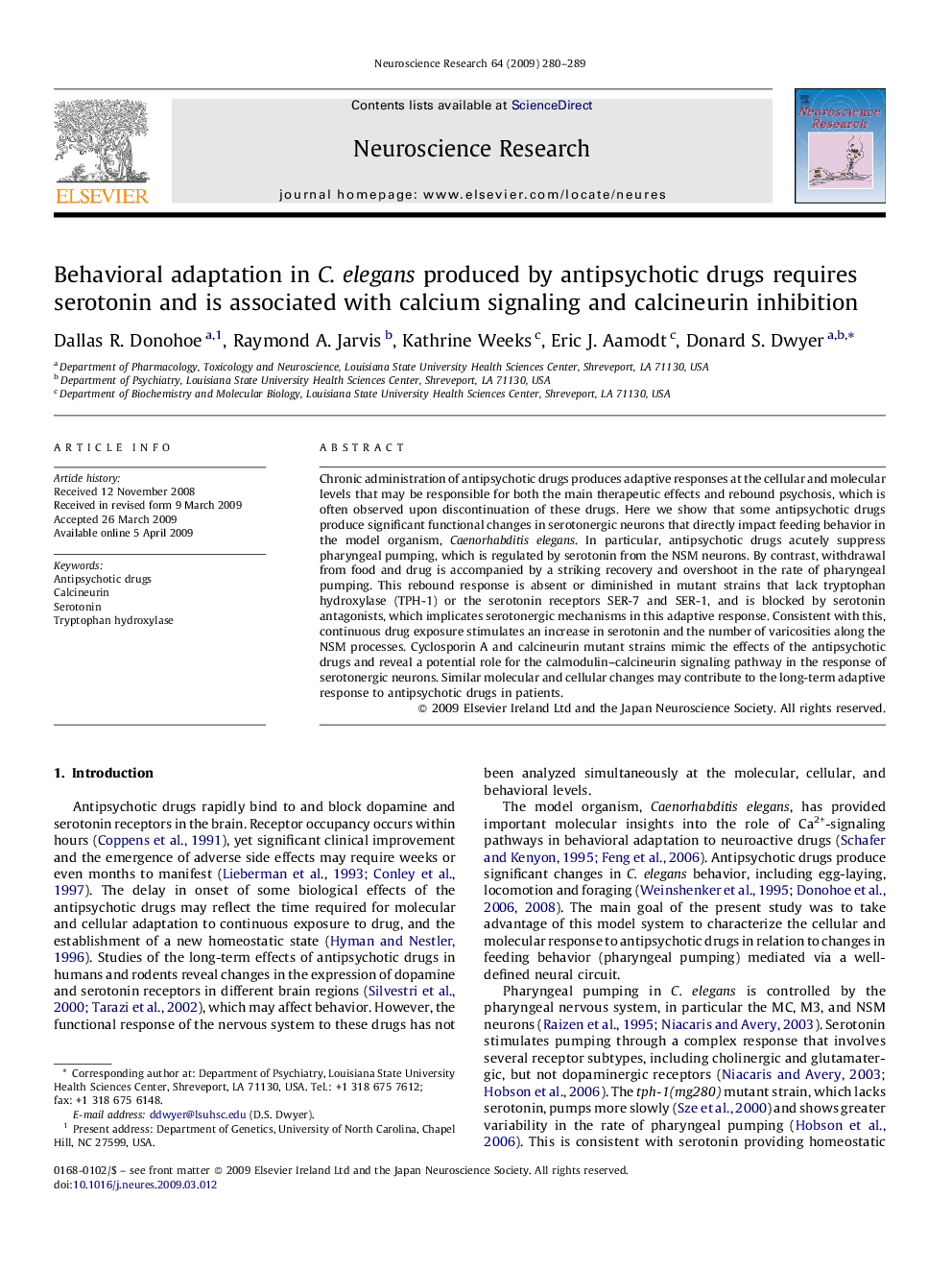| Article ID | Journal | Published Year | Pages | File Type |
|---|---|---|---|---|
| 4352938 | Neuroscience Research | 2009 | 10 Pages |
Abstract
Chronic administration of antipsychotic drugs produces adaptive responses at the cellular and molecular levels that may be responsible for both the main therapeutic effects and rebound psychosis, which is often observed upon discontinuation of these drugs. Here we show that some antipsychotic drugs produce significant functional changes in serotonergic neurons that directly impact feeding behavior in the model organism, Caenorhabditis elegans. In particular, antipsychotic drugs acutely suppress pharyngeal pumping, which is regulated by serotonin from the NSM neurons. By contrast, withdrawal from food and drug is accompanied by a striking recovery and overshoot in the rate of pharyngeal pumping. This rebound response is absent or diminished in mutant strains that lack tryptophan hydroxylase (TPH-1) or the serotonin receptors SER-7 and SER-1, and is blocked by serotonin antagonists, which implicates serotonergic mechanisms in this adaptive response. Consistent with this, continuous drug exposure stimulates an increase in serotonin and the number of varicosities along the NSM processes. Cyclosporin A and calcineurin mutant strains mimic the effects of the antipsychotic drugs and reveal a potential role for the calmodulin-calcineurin signaling pathway in the response of serotonergic neurons. Similar molecular and cellular changes may contribute to the long-term adaptive response to antipsychotic drugs in patients.
Related Topics
Life Sciences
Neuroscience
Neuroscience (General)
Authors
Dallas R. Donohoe, Raymond A. Jarvis, Kathrine Weeks, Eric J. Aamodt, Donard S. Dwyer,
